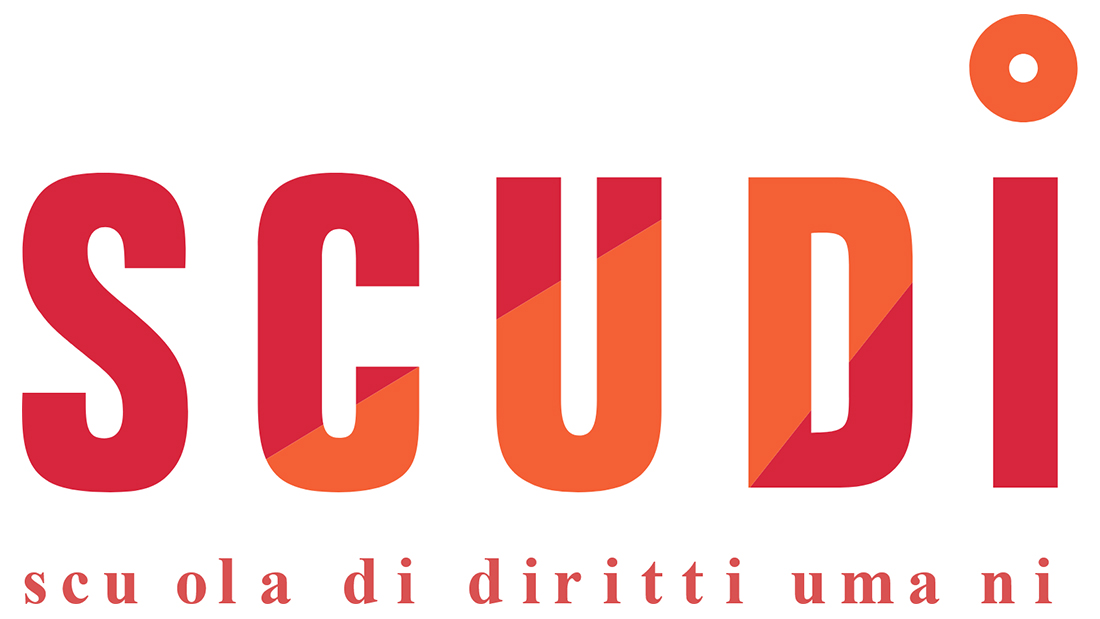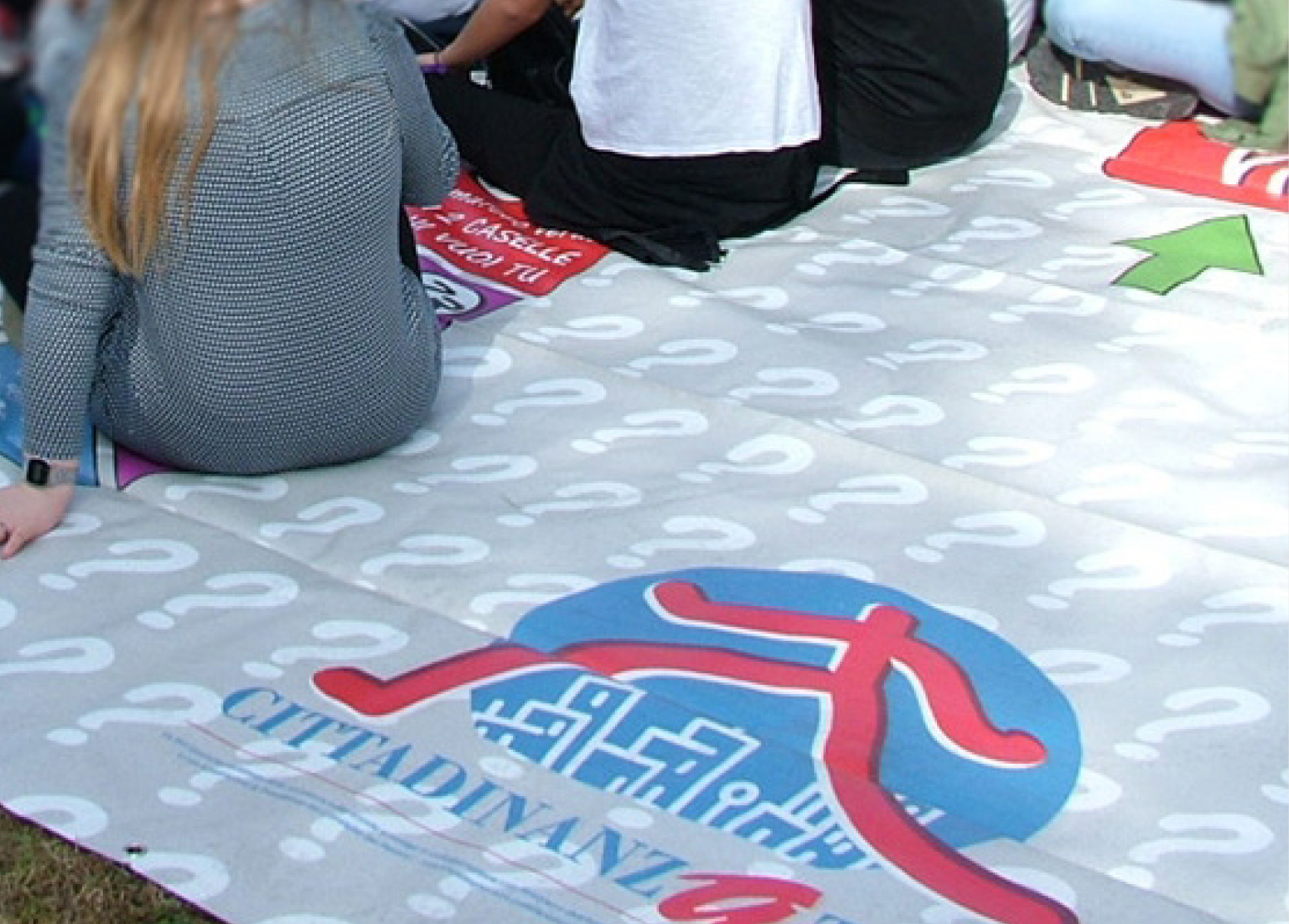In March, the SCUDI project “SCuola di Diritti umani (School of Human Rights)” was launched, “promoted by Cittadinanzattiva and CILD the strategic litigation for the protection of migrants' rights”. This innovative initiative aims to strengthen the protection of human rights for migrants who arrive in Italy. SCUDI is a project funded by the European Commission under the “Citizens, Equality, Rights and Values'' (CERV) Program and aims to develop strategic litigation skills as a key tool for implementing the Charter of Fundamental Rights of the European Union in the Italian national context.
In recent years, Italy has seen the consolidation of discriminatory policies and practices that bring about inequalities and exclusion for migrants and/or those with a migratory background, with a greater impact on the most vulnerable groups including minors and women. The Charter of Fundamental Rights of the European Union and the appeal mechanisms provided by EU law are seldom known and applied, despite their multiple areas of application for the protection of migrants' rights. The SCUDI project aims to overcome this systematic violation of rights through empowerment and capacity building aimed at civil society organisations (CSOs) committed to defending migrants' rights.
Duration and Significant Developments
The project, which started in March 2024, will be 24 months in duration, during which various strategic activities will be implemented to achieve the project’s objectives. SCUDI aims to create a lasting impact through a holistic approach that includes training, network building, and awareness-raising.
Project Objectives
The main objective of the SCUDI project is to strengthen strategic litigation capabilities as a key mechanism for correctly, and more regularly implementing the EU Charter of Fundamental Rights in Italy. This will be achieved through the development of a legal database and knowledge platform, the training of lawyers and human rights activists, and the creation of a European network of civil society organisations engaged in sea rescue operations.
Methodology
SCUDI is based on a holistic approach, supported by experience in human rights protection and the promotion of migrants' rights. The project aims to train lawyers, legal practitioners, and human rights activists on the use of the EU Charter of Fundamental Rights through strategic litigation and the strengthening of stakeholders, creating a network of legal professionals capable of promoting and enhancing the protection of migrants in Italy.
Main Activities
- Development of the SCUDI Knowledge Platform: This will be a publicly accessible virtual platform that collects and synthesises useful information for the development of legal skills for lawyers and human rights activists, for a broader application of strategic litigation and the EU Charter of Rights.
- Training: 40 legal professionals and practitioners and 30 human rights activists will be trained through online and in-person activities, to create a network of 20 lawyers to handle pilot cases on strategic issues and a network of “watchdog” human rights activists.
- Creation of a European Network: A European community of practice for legal support to NGOs involved in sea rescues, aiming to create a common alert network against attacks on sea rescue workers and the organisation of strategic litigation before European regional courts.
SCUDI aims to create a significant impact through various means:
- Empowering CSOs: Restrengthening the strategic litigation capacities of civil society organisations engaged in defending the rights of migrants
- Improve the knowledge, awareness, and understanding of legal professionals and CSO activists of EU law and the EU Charter, in particular of strategic litigation and redress mechanisms.
- Promoting Cooperation and Synergy: Strengthening synergies and alliances between different human rights defenders and various CSOs, both nationally and across Europe.
- Awareness-Raising: Raising awareness among about 10,000 activists and migrant communities about their rights and the steps to take to defend themselves under EU laws.
Sustainability and Replicability
The networks created by the project will ensure the continuity and expansion of activities and impacts over time. The SCUDI knowledge platform will continue to be updated with new content even after the project's conclusion, making it a permanent legal reference source available not only to the project's network, but also to other Italian and European CSOs.
The SCUDI project represents an important initiative for protecting migrants' rights in Italy, proposing an integrated approach that combines capacity building, stakeholder empowerment, and the creation of European networks. Through the implementation of innovative tools and the promotion of synergies between various actors, SCUDI aims to offer more effective and comprehensive protection of migrants' human rights, while also stimulating positive social and political change.
Project Partners:
Cittadinanzattiva
Cittadinanzattiva Aps is a civic participation movement founded in 1978 that works for the promotion and protection of citizens' and consumers' rights in Italy (with 20 regional offices and about 250 local assemblies) and Europe. Since 2000, it has been recognized by the CNCU (at the Ministry of Economic Development) as a consumer association. Cittadinanzattiva has also been a member organisation of CILD since 2014. Website: www.cittadinanzattiva.it
CILD
Founded in 2014, the Italian Coalition for Civil Liberties and Rights (CILD) is an initiative of permanent collaboration among civil society organisations working to defend and promote fundamental rights, combining communication campaigns, legal action, training, and organisational support activities.
Website: www.cild.eu

Questo progetto è finanziato dall'Unione Europea.
Le opinioni espresse sono tuttavia quelle delle autrici e degli autori e non riflettono necessariamente quelle dell'Unione Europea o dell'Agenzia Esecutiva per l'Istruzione, gli Audiovisivi e la Cultura (EACEA). Né l'Unione Europea né l'autorità concedente possono essere ritenuti responsabili per esse.
Durata: marzo 2024 – febbraio 2026
Per maggiori informazioni:













